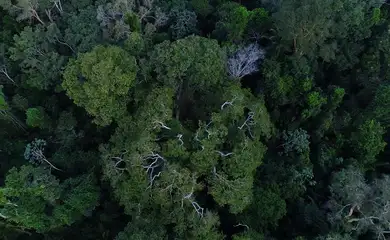Petrobras buys carbon credits for the first time

Petrobras reported it marked its entry into the voluntary carbon market by purchasing credits equivalent to 175 thousand tons of avoided emissions. The operation corresponds to the preservation of 570 hectares of the Amazon forest—the size of 800 football fields like the Maracanã stadium.

The credits were acquired from the Envira Amazônia project, headquartered in Feijó, Acre state, and dedicated to the preservation of the forest and the development of local communities.
The company’s Strategic Plan 2023–27 includes other operations in the carbon market, with total investments of up to $120 million in the acquisition of credits expected by 2027.
With the purchase of carbon credits, the state-run oil giant’s goal is to bolster decarbonization on various fronts, like reducing emissions in operations, supporting renewable energy projects, as well as carbon capture and storage.
According to Petrobras, the guidelines for the next Strategic Plan 2024–28, currently under development, favor the search for profitable opportunities to expand investment in low carbon, aiming for six to 15 percent of the company’s global investment.
“We want to make an incisive contribution to Brazil’s energy transition. With each stride toward the use of clean sources, carbon capture and storage, and investment in decarbonization, we are creating a future in which the economy prospers in harmony with the planet,” Petrobras CEO Jean Paul Prates said in a statement.
Petrobras believes in the carbon market as a vital instrument in combating climate change, he added. “We know that Brazil has immense potential to lead this segment precisely because it’s one of the countries with the greatest biodiversity in the world,” he argued.
According to Energy Transition and Sustainability Director Maurício Tolmasquim, the priority will be to acquire quality natural-based credits generated in Brazil that contribute to the conservation and recovery of Brazilian biomes. “We want to ensure that the credits used generate climate, social, and environmental benefits for the country in a transparent and traceable way,” he stated.
Carbon market
The carbon market is a tool for offsetting greenhouse gas emissions through the negotiation of carbon credits. These are generated by initiatives that prevent these gases from being emitted, or remove them. Thus, the credits work as a currency, and companies can buy them to offset operational emissions. Well-established markets can speed up the reduction of emissions and costs for society, as they can identify the best opportunity costs.
In addition, the carbon market is one of the ways to meet the goals of the Paris Agreement signed in 2015 by nearly 200 nations—including Brazil, which pledged to adopt measures to slash greenhouse gas emissions.
Carbon credits can be generated in several ways, for example from the capture of methane in landfills or from natural-based projects known as Nature Based Solutions, which stand out for their contribution to the recovery or preservation of natural ecosystems and their environmental benefits, such as the preservation of biodiversity and water resources, and the positive impact they can have on local communities.




